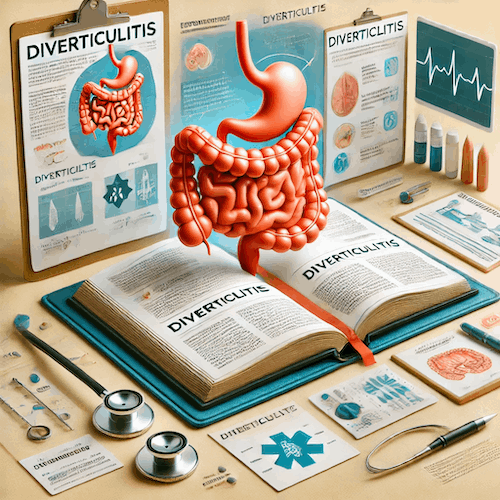
Lean More About Diverticulitis
Diverticulitis is a common gastrointestinal condition characterized by inflammation of diverticula, small pouches that can form in the walls of the colon. Understanding the latest insights into this condition is essential for effective management and treatment.
## Current Management Approaches
Recent guidelines emphasize a shift towards outpatient management for uncomplicated diverticulitis. This includes a clear liquid diet for a few days, followed by a low-fiber diet as symptoms improve. Antibiotic use is now recommended selectively, as studies show that routine antibiotic therapy may not significantly reduce complications or recurrence rates[1][2].
## Diagnostic Techniques
Computed tomography (CT) scans are crucial for diagnosing diverticulitis and distinguishing between uncomplicated and complicated cases. Complicated diverticulitis may require more aggressive treatment, including hospitalization and possibly surgery, depending on the severity of the complications[3][4].
## Risk Factors and Prevention
Research has also indicated a potential link between diverticulitis and an increased risk of colon cancer, particularly shortly after diagnosis. This underscores the importance of follow-up care, including colonoscopy, to monitor for malignancies[1][4].
## Future Directions
Ongoing studies are exploring the role of dietary fiber and the gut microbiome in preventing diverticulitis episodes. Increasing fiber intake is generally recommended to reduce intraluminal pressure and prevent complications associated with diverticular disease[5].
For more detailed information, you can refer to the following sources:
- Management of Diverticulitis: A Review - JAMA Network
- The Management of Diverticulitis: A Review of the Guidelines - MJA]
- Diverticular Disease Evidence Review - NICE
- Diverticulitis Treatment & Management - Medscape
Citations:
[1] https://www.mja.com.au/system/files/issues/211_09/mja250276.pdf
[2] https://www.nice.org.uk/guidance/ng147/evidence/h-nonsurgical-management-of-acute-diverticulitis-pdf-6969106485
[3] https://emedicine.medscape.com/article/173388-treatment
[4] https://jamanetwork.com/journals/jamasurgery/article-abstract/2817649
[5] https://pubmed.ncbi.nlm.nih.gov/16498253/